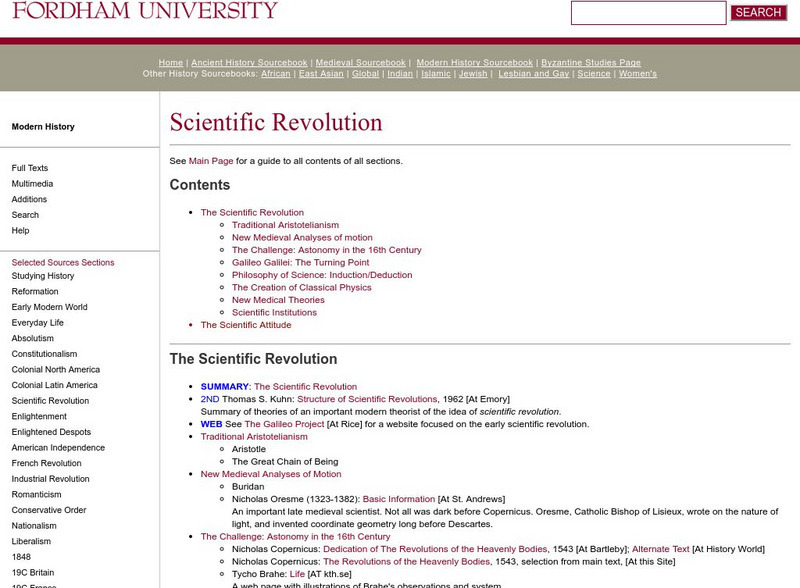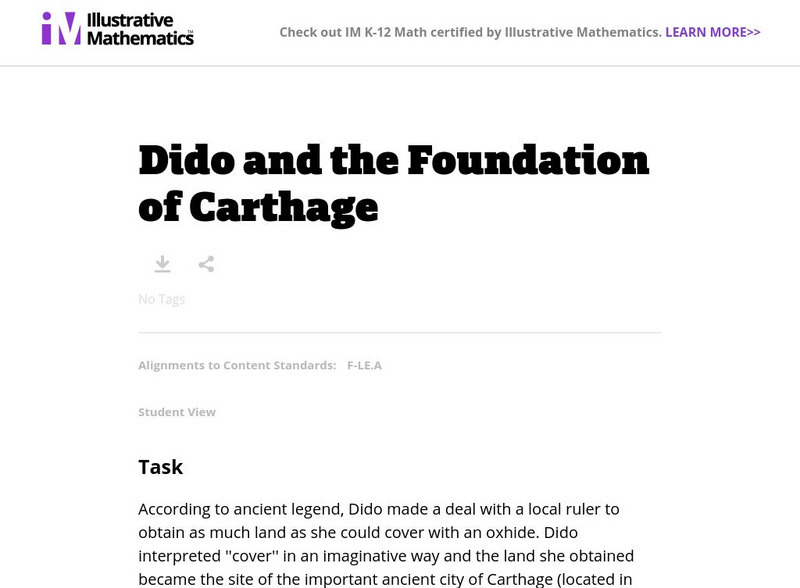University of St. Andrews (UK)
University of St. Andrews: Al Karaji
This mathematician contributed to many areas of mathematics, but most importantly he developed the formula to multiply exponents.
University of St. Andrews (UK)
University of St. Andrews: Hypsicles of Alexandria
This mathematician is remembered for his work on regular polyhedra. You can find more about the works of Hypsicles and other mathematicians at this site.
Smithsonian Institution
National Museum of American History: Slates, Slide Rules and Software
Did you learn to calculate using a 7-foot-long slide rule? Did you learn about the properties of numbers using brightly colored Cuisenaire rods? Ever wonder who invented the graph paper you used in geometry class? Go back to the...
TED Talks
Ted: Ted Ed: The Magic of Vedic Math
There is more than one way to reach a correct answer in mathematics. Vedic math, an ancient Indian method, sidesteps traditional computations in a manner that provides a shortcut, while being fun to use and to learn. Gaurav Tekriwal...
Internet History Sourcebooks Project
Fordham University: Modern History Sourcebook: Isaac Newton
This site from Fordham University links to excerpts of Newton's major works. Please scroll down to find the section on Newton titled "The Creation of Classical Physics." You will be able to actually read some of Newton's work! Read...
Wolfram Research
Wolfram Math World: History and Terminology Topics
Biographies of famous mathematicians, the history of math, math notation, and mathematical terminology are several of the topics explored by MathWorld. Each link takes the user to a site with extensive information, detailed sketches, and...
University of St. Andrews (UK)
University of St. Andrews: A Visit to James Clerk Maxwell's House
From the MacTutor History of Mathematics website, this page allows students to see the Edinburgh home of the 19th century Scottish physicist James Clerk Maxwell.
University of St. Andrews (UK)
University of St. Andrews: Emmy Amalie Noether
The School of Mathematics and Statistics of St. Andrew's University provides biographical information on the mathematical career of Emmy Noether. Included are links to other famous individuals with whom she worked and links to her topics...
University of St. Andrews (UK)
University of St. Andrews: Biography of Thomas Muir
The School of Mathematics and Statistics of St. Andrew's University provides biographical information on the mathematical career of Thomas Muir. Included are links to other famous individuals with whom he worked and links to his topics...
University of St. Andrews (UK)
University of St. Andrews: Biography of Jacob Bernoulli
The School of Mathematics and Statistics of St. Andrew's University provides biographical information on the mathematical career of Jacob Bernoulli. Included are links to other famous individuals with whom he worked and links to his...
University of St. Andrews (UK)
University of St. Andrews: Eudoxus of Cnidus
This page provides an excellent biography of Eudoxus of Cnidus, an ancient Greek astronomer and mathematician. Discusses his life, travels, and contributions to the field of mathematics. Includes special links.
Other
History of Islamic Science 3: The Time of Al Razi
In-depth look at Islamic society during the time of al-Razi. Discusses "Arabic Mathematics and Astronomy," "Muslim Alchemy and Physics," "Muslim Medicine," and several well-known individuals such as al-Mahani, inb Yusuf, al-Nairizi, ibn...
Illustrative Mathematics
Illustrative Mathematics: F Le Dido and the Foundation of Carthage
According to ancient legend, Dido made a deal with a local ruler to obtain as much land as she could cover with an oxhide. Dido interpreted "cover" in an imaginative way and the land she obtained became the site of the important ancient...
University of St. Andrews (UK)
University of St. Andrews: Greek Number Systems
A comprehensive discussion of Greek number systems of the first millennium BC, including acrophonic and alphabetical. Includes examples demonstrating the lack of a truly unified system among the Greek islands.
Wikimedia
Wikipedia: Timeline of Mathematics
Wikipedia gives a timeline of all of the important mathematical accomplishments from 2400 BC to 2002. Most names and concepts are linked to further information specific to that person or idea.
World History Encyclopedia
World History Encyclopedia: Greek Mathematics
Discusses the major cultural influences on the development of mathematics in ancient Greece, and how the Greeks went on to surpass those cultures. The work of the Pythagoreans and of Euclid are described, along with some famous...
University of St. Andrews (UK)
University of St. Andrews: A History of Pi
From a historical view, the authors give a very descriptive timeline of pi.
University of St. Andrews (UK)
University of St. Andrews: Albert Girard
In trigonometry today, we use the abbreviations sin, cosine and tan. Girard was the first mathematician to use these abbreviations in his work.
Smithsonian Institution
National Museum of American History: Teaching Math & Science in Age of Sputnik
Why did the Soviet Union's launch of Sputnik throw the fields of mathematics and science into tremendous demand in the United States? Find the many ways this revolutionary event impacted children from the 1950s to become the...
University of St. Andrews (UK)
University of St. Andrews: Arabic Mathematics: Forgotten Brilliance?
The University of St. Andrews offers a fascinating look at the advances made by Arabic/Islamic mathematicians from about 780 AD to 1450 AD, only more recently being appreciated for their beauty and originality. Includes embedded links to...
Other
Ancient Greek Philosophy: Zeno of Elea
Describes the little that is known of Zeno of Elea's life. Also discusses his denial of motion and plurality hypothesis. He explained his ideas using paradoxes that continue to challenge intellectual minds today, and that have had a big...
Science Struck
Science Struck: Father of Calculus Newton or Leibniz?
Discusses the continuing debate over who was the founder of calculus, Sir Isaac Newton or Gottfried Wilhelm von Leibniz.
Stanford University
Stanford Encyclopedia of Philosophy: Aristotle
Looks at the life of Aristotle (384-322 B.C.E.) and the far-reaching scope of his intellectual ideas. The article examines in depth his theories in the disciplines of philosophy, politics, mathematics and science, and his legacy.
Other
Museum of Ancient Greek Technology
This is a virtual exhibition of inventions from ancient Greece that have been reconstructed by Kostas Kotsanas after over two decades of study and research. Click on 'The Museum' link at the top of the page to read an explanation and to...






















